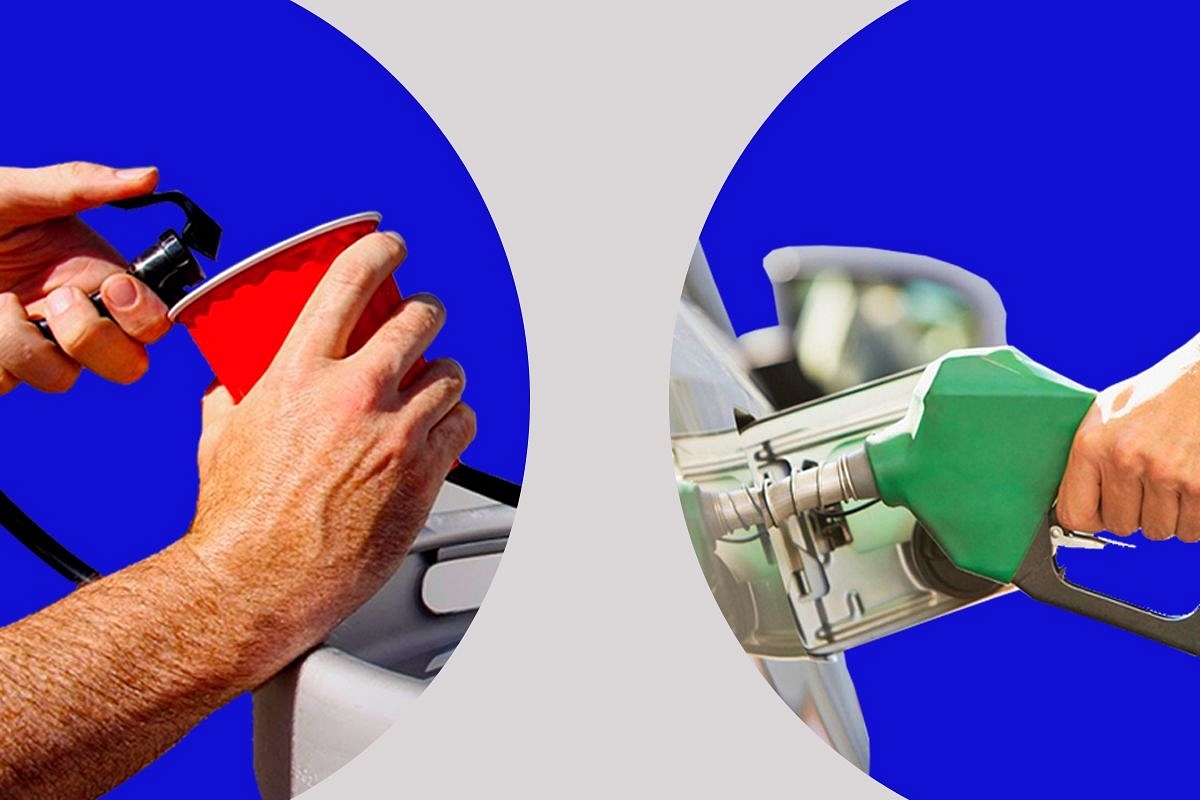Economy
Why Covid-19 Has Weakened The Case For Liquor And Petro-Goods Under GST
- The case for putting petro-goods and liquor in GST has just gotten weaker.

Liquor And Petro-Goods
The long and disorderly queues outside liquor shops yesterday (4 May) have drawn a lot of criticism: some decry the opening of liquor shops because proper safe distancing norms were not followed; others critique the very idea of giving people the right to a tipple when thousands of the migrant poor are semi-starved and without enough money in their pockets.
The one thing everyone agreed on was that states were keen to open liquor shops because of the tax revenue potential. According to an estimate by The Economic Times, liquor provides Rs 2.48 lakh crore annually to state and central exchequers.
Little wonder, states that have seen goods and services tax (GST) revenues crash dramatically in April during the period of lockdown, are keen to restart liquor sales. Liquor is quicker.
This gives us a pointer as to what states will next ease up on: passenger vehicles movement. Bengaluru, which is supposedly a Covid-19 red zone, already allows people to move around in cars and two-wheelers between 7am and 7pm, and many more cities will follow suit.
The reason is obvious: petroleum taxes are the biggest single source of state revenue. Petro-taxes brought Rs 2.27 lakh crore in 2018-19 to states (the Centre got even more), and Rs 1.59 lakh crore in the first nine months of 2019-20, according to the Petroleum Planning and Analysis Cell in the Petroleum Ministry.
With hindsight, one must thank the country’s lucky stars that both liquor and petro-products were kept out of the goods and services tax (GST) basket despite cries from businessmen to do so. This is what will give states the ability to generate revenues quickly when GST has gone bust.
The moral of the story is this: GST is a good tax and must be cleaned up and reformed, but it is not a bad idea to leave states with some revenue flexibility of their own so that they are not left entirely to centrally generated resources.
GST is about tax collection efficiency and prevention of revenue leakages along the product value chain; but efficiency must be balanced against the need for states to retain some degree of financial sovereignty in a federal set-up.
In a situation where states have to bear the brunt of the expenses for fighting Covid-19, it would have been unfair to have them perpetually begging the Centre for resources. Not only is this unreasonable, but it also gives scope for generating bad blood between Centre and states.
Just as we invest in diversified mutual funds to spread the risk, it is equally important that states should not have to depend entirely on GST revenues over which they have little control. Federalism requires each player to have some independent sources of revenue that are not fully dependent on shares from one single pot of national revenue.
The case for putting petro-goods and liquor in GST has just gotten weaker.
Support Swarajya's 50 Ground Reports Project & Sponsor A Story
Every general election Swarajya does a 50 ground reports project.
Aimed only at serious readers and those who appreciate the nuances of political undercurrents, the project provides a sense of India's electoral landscape. As you know, these reports are produced after considerable investment of travel, time and effort on the ground.
This time too we've kicked off the project in style and have covered over 30 constituencies already. If you're someone who appreciates such work and have enjoyed our coverage please consider sponsoring a ground report for just Rs 2999 to Rs 19,999 - it goes a long way in helping us produce more quality reportage.
You can also back this project by becoming a subscriber for as little as Rs 999 - so do click on this links and choose a plan that suits you and back us.
Click below to contribute.
Latest